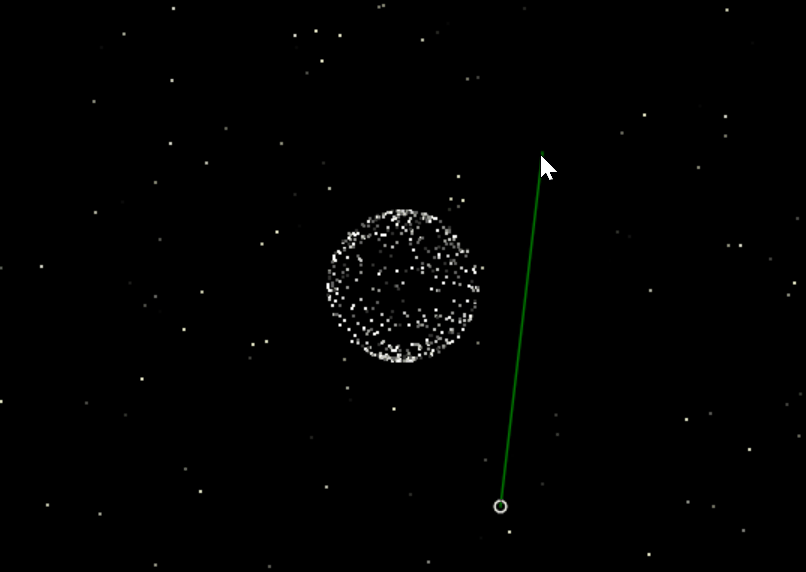
- #PARTICLE PLAYGROUND AND PLAYMAKER FOR FREE#
- #PARTICLE PLAYGROUND AND PLAYMAKER HOW TO#
- #PARTICLE PLAYGROUND AND PLAYMAKER FULL#
- #PARTICLE PLAYGROUND AND PLAYMAKER PRO#
- #PARTICLE PLAYGROUND AND PLAYMAKER SOFTWARE#
Your code, not the Unity engine code, runs on Mono or the Microsoft. You write code in C#, JavaScript (UnityScript) or, less frequently, Boo. I’ll get into real game development with Unity in the next article, but, first, I’ll explore the Unity interface, project structure and architecture. The Editor, which is the main Unity interface, runs on Windows (including Surface Pro), Linux and OS X. You can see the differences between the versions at unit圓d.com/unity/licenses.
#PARTICLE PLAYGROUND AND PLAYMAKER FOR FREE#
There’s a single download that can be licensed for free mode or pro. Getting Startedĭownload the latest version of Unity and get yourself a two-button mouse with a clickable scroll wheel. Unity supports Windows standalone executables, Windows Phone, Windows Store applications, Xbox 360 and Xbox One. Where does Microsoft fit into this? Microsoft and Unity work closely together to ensure great platform support across the Microsoft stack. So, again, I hesitate to suggest any limits on what Unity can do. There’s at least one third-party modeling plug-in (ProBuilder), though, that allows you to model 3D components right inside of Unity there are 2D world builder plug-ins such as the 2D Terrain Editor for creating 2D tiled environments, and you can also design terrains from within Unity using their Terrain Tools to create amazing landscapes with trees, grass, mountains, and more. In that sense, Unity isn’t an asset-creation tool like Autodesk Maya or 3DSMax, Blender or even Adobe Photoshop. You can bring a bunch of zombies into a scene and control them, but you wouldn’t create zombies in the Unity default tooling.

However, Unity by default isn’t a system in which to design your 2D assets and 3D models (except for terrains). I hesitate to describe anything Unity isn’t as people challenge that all the time. Most, if not all, professional game developers use a number of packages from the asset store, and if you have something decent to offer, you can publish it there as well. The Unity interface is fully scriptable, allowing many third-party plug-ins to integrate right into the Unity GUI.
#PARTICLE PLAYGROUND AND PLAYMAKER FULL#
In it you can find all of your game component needs, such as artwork, 3D models, animation files for your 3D models (see Mixamo’s content in the store for more than 10,000 motions), audio effects and full tracks, plug-ins-including those like the MultiPlatform toolkit that can help with multiple platform support-visual scripting systems such as PlayMaker and Behave, advanced shaders, textures, particle effects, and more. Perhaps the most powerful part of Unity is the Unity Asset Store, arguably the best asset marketplace in the gaming market. Unity allows you to import and assemble assets, write code to interact with your objects, create or import animations for use with an advanced animation system, and much more.Īs Figure 1 indicates, Unity has done work to ensure cross-platform support, and you can change platforms literally with one click, although to be fair, there’s typically some minimal effort required, such as integrating with each store for in-app purchases. You can do an impressive amount with the free version.) Unity supports all major 3D applications and many audio formats, and even understands the Photoshop.
#PARTICLE PLAYGROUND AND PLAYMAKER PRO#
(There’s also a pro version that’s very nice, but it isn’t free. Unity allows you to interact with them via not only code, but also visual components, and export them to every major mobile platform and a whole lot more-for free. I say games and apps because I’ve seen not just games, but training simulators, first-responder applications, and other business-focused applications developed with Unity that need to interact with 2D/3D space. Unity is a 2D/3D engine and framework that gives you a system for designing game or app scenes for 2D, 2.5D and 3D.
#PARTICLE PLAYGROUND AND PLAYMAKER HOW TO#
I’ll show how to create 2D and 3D games and, finally, how to build for the Windows platforms. This is the first article in a four-part series that will cover the basics and architecture of Unity.

Then, one day, I decided to experiment with Unity, and I saw it could do some amazing things.

I then started on DirectX development but realized that, although it was extremely powerful, it seemed like too much code for what I wanted to do. I had done some native code graphics programming in the early Windows days, and it wasn’t a fun experience. When it came to making games, though, I was a bit lost as to where to start.

#PARTICLE PLAYGROUND AND PLAYMAKER SOFTWARE#
Volume 29 Number 8 Unity : Developing Your First Game with Unity and C#Īs a software architect, I’ve written many systems, reverse-engineered native code malware, and generally could figure things out on the code side.


 0 kommentar(er)
0 kommentar(er)
